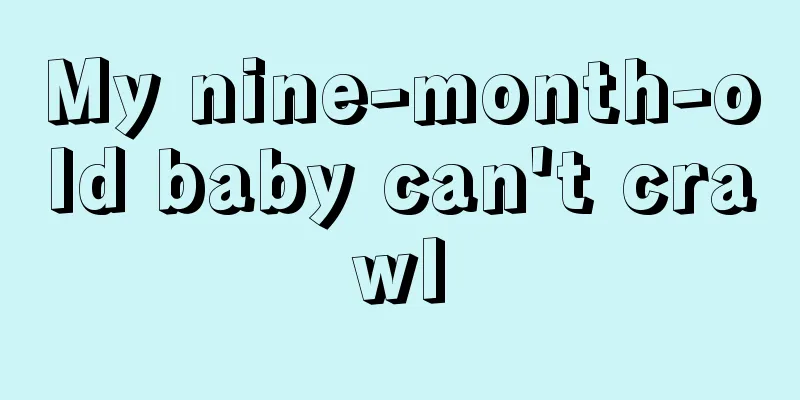What to do if children have tonsillitis

|
For children, their physical fitness is not as good as that of adults. Children will be threatened by many diseases during their growth. Today we are talking about children's tonsillitis. Many children's tonsils will be inflamed, which is a common disease in children. So when your child's tonsils are inflamed, what should parents do? The following is a detailed explanation for everyone The human pharynx is rich in lymphatic tissue, which gathers into clusters called tonsils. In fact, there are many types of tonsils, and what we usually call "tonsillitis" is actually an inflammation of the palatine tonsils located on both sides of the upper pharynx. Tonsils are an immune organ in the human body and the first line of defense against upper respiratory tract infections. They can resist various pathogenic microorganisms that invade the body and play a certain anti-disease role. Especially before the child is 4 years old, it is particularly important In children, it often manifests as hyperplasia and hypertrophy of the palatine tonsils, while in adults, it often manifests as inflammatory changes. Once the body's resistance is reduced, it often manifests itself as multiple and repeated acute attacks, such as high fever, severe sore throat, difficulty swallowing, general fatigue, etc. Over time, it can easily become "focal infection", which may be complicated by nephritis, myocarditis, rheumatic heart disease and arthritis. Tonsillitis is caused by many different viruses and bacteria. Once the tonsils become inflamed, the throat will become red and swollen, and it will be painful to swallow saliva. At this time, it will be clearly found that the patient's tonsils are covered with white, grayish white or yellowish substances. Specifically, there are five symptoms of tonsillitis: Symptom 1: History of recurrent sore throat, susceptibility to colds, or peritonsillar abscess. Symptoms are usually not obvious, but there is often a history of acute attacks. Symptom 2: Often complain of mild symptoms such as dry throat, itching, foreign body sensation, irritating cough, bad breath, etc. If the tonsils are too enlarged, breathing, swallowing or speech resonance problems may occur. Symptom 3: Common symptoms include indigestion, headache, fatigue, low fever, etc. Symptom 4: Examination: Tonsils and palatoglossal arches are diffusely congested, and yellow and white cheesy dots can be seen at the openings of the crypts; these dots sometimes need to be squeezed out of the crypts by squeezing the palatoglossal arches with a tongue depressor. Symptom 5: Tonsils of varying sizes. Children, mostly those with hyperplasia, have enlarged tonsils; In summary, if parents find that their children have corresponding symptoms, they can make some adjustments in their diet to treat their children's tonsillitis. If the child feels uncomfortable in the throat at home, you can give the child some kumquats, and if the child has a sore throat, you can give the child some pears. In addition, do not let the child eat spicy and greasy food in life, otherwise it will only aggravate the symptoms of tonsillitis. |
<<: Why is the child's face red?
>>: How to deal with toddler temper tantrums
Recommend
1. Care after the baby's rash
Babies are very prone to symptoms such as roseola...
Is foot bath suitable for children?
As people’s work pressure increases in modern soc...
What are the symptoms and causes of intestinal obstruction in children?
Regarding intestinal obstruction in children, bas...
What to do if anal fissures bleed in children
When children suffer from anal fissures, they can...
Causes and symptoms of neurogenic urinary frequency in children
Maybe you are not too familiar with the symptoms ...
What causes black testicles in newborns?
Many parents may find that their newborn boys ten...
What causes nose pain in children?
If a child has a sore nose but no obvious externa...
How to correct stuttering in children
The current family model is actually very common,...
What should I do if my child is diagnosed with thalassemia during prenatal check-up?
With the development of the times and the advance...
What are the classifications of infantile polycystic kidney disease?
Pregnancy is the happiest thing for parents. All ...
Do children with conjunctivitis blink frequently?
Conjunctivitis is a common eye disease in childre...
What does a child lack that will affect his intellectual development?
The intellectual development of children is of gr...
Yellow stool during neonatal jaundice
In our lives, neonatal jaundice is a very common ...
Seven month old baby can't stand
Babies learn their various physiological function...
What to do if your child has cough and asthma
The symptoms of cough in young children cannot be...









